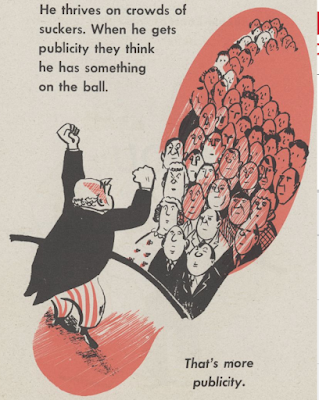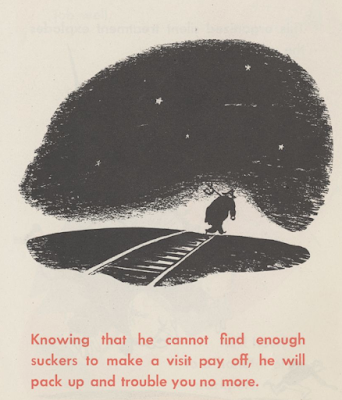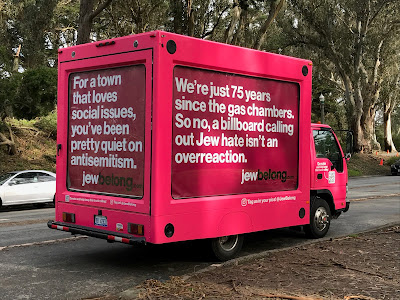I find myself, once again, trying to fill in some understanding of the eastern reaches of Europe. My generation of Americans simply didn't get it that there was a swath of territory, roughly the nations and peoples between the Baltic Sea and the Black and Adriatic Seas, which were obliterated from our consciousness by the Soviet empire. Once this had been the heart of Europe; before 1990 for many of us, it barely existed. It is thirty years since the Iron Curtain evaporated, but I'm certain I'm not the only one who is catching up. To that end, I want to recommend a difficult history.
Historian Omer Bartov, an Israeli academic who teaches the Holocaust at Brown University, brings alive life and death in one small place in western Ukraine, before and after the Nazi slaughter. Anatomy of a Genocide: The Life and Death of a Town Called Buczacz took two decades to write, collecting witness accounts, survivor stories, and old pictures. And, amazingly, it is readable and accessible.
Bertov explains his explication of local genocide this way:
By letting those who lived that history lend their own words to the telling of it and providing accompanying photos, this book attempts to reconstruct the life of Buczacz in all its complexity and depict how the Polish, Ukrainian, and Jewish inhabitants of the town lived side by side for several centuries -- weaving their separate tales of the past, articulating their distinctive understanding of the present, and making widely diverging plans for the future.
Life in towns such as Buczacz was premised on constant interaction between different religious and ethnic communities. The Jews did not live segregated from the Christian population; the entire notion of a shtetl existing in some sort of splendid (or sordid) isolation is merely a figment of the Jewish literary and folkloristic imagination. That integration was what made the genocide there, when it occurred, a communal event both cruel and intimate, filled with gratuitous violence and betrayal as well as flashes of altruism and kindness.
Buczacz had been part of the thousand year Hapsburg empire which died conclusively in 1918 with what we call the First World War. During the subsequent period, until 1939, the town was both a battleground and a haven for the nationalisms of the day, ruled, badly by Polish, Ukrainian, and Russian-oriented Soviet partisans.
The three decades that followed the destruction and erasure of pre-1914 ... society belonged to the nationalists and ideologues, fanatics and zealots of a new breed, more willing to shed blood than to seek compromise, more determined to assert their hegemony than to preserve coexistence: impatient men with guns and bombs, often led by the half educated and thirsting for a fight. ... Jews were cast in the role of a minority whose status could never be truly acceptable to either of the warring parties. Jews could be ignored, tolerated, or expelled, but by the nationalism that had evolved in this region, could neither be recognized as a separate indigenous national group or assimilated as ethnically kindred ... both Poles and Ukrainians increasingly felt that the Jews were their enemy's friends ...
In 1939, Hitler and Stalin cut a deal to dismember Poland and seize the lands between the two powers. Russia overran Buczacz and brought in NKVD (Secret Police) to rule with the support of Ukrainian nationalists. Bertov reports the opinions of Jadwiga Janika, the wife of a Polish Army captain, about this period.
"At the the moment of of the Red Army's invasion," she testified, "an indescribable depression dominated the Polish population. Conversely, there was lively enthusiasm among the Jews and the Ukrainians." ... The early wave of fraternal killings [Ukrainians of Poles] evoked questions about the meaning and reality of interethnic relations, friendships, and communities, certainly among Poles and Ukrainians, who frequently intermarried, but also among Jews, who recalled many gentile friends and acquaintances. People repeatedly asked, Why did our neighbors, classmates, teachers, colleagues, friends, even family members turn their backs on us, betray us to the perpetrators, or join in the killings?"
Many Poles were shipped off to Soviet Kazakhstan; to Ukrainian nationalists, the Poles were interlopers, "colonists." Some locals hope the joint hatred felt by Poles and Ukrainians for the Jews might serve as "an agenda for Polish-Ukrainian reconciliation."
Hitler's German forces overran Buczacz in 1941. The exploitation and eventual extermination of the Jews became a central item on the occupiers' agenda. First came the Gestapo - the Einsatzgruppen -- charged with eliminating "political and racial foes." After the first bloody wave, came the Wehrmacht, the regular German Army. Finally the occupation, and the final solution, was left to Security Police, often men who had held a similar job in peacetime Germany. They believed Germany had achieved permanent conquest; they brought their wives and children along.
The new order established by the Security Police ... was almost exclusively dedicated to the exploitation and murder of the Jews. ... Beyond the extraordinary bloodletting this undertaking entailed, perhaps its most scandalous aspect was the astonishing ease with which it was accomplished and the extent to which the killers, along with their spouses and children, lovers and colleagues, friends and parents, appear to have enjoyed their brief murderous sojourn in the region. For many of them, this was clearly the best time of their lives: they had almost unlimited access to food, liquor, tobacco, and sex, and most important, they became supreme masters over life and death.
And when they were done, they packed up and left, often returning to their previous occupations as if nothing had happened ...
[N]ormalization of murder, the removal of the Jews as part of a day's work, as background noise to drinking bouts or amorous relationships, along with puzzlement at the Jew's conduct mixed with anger at them for making it so easy to kill them -- these were part and parcel of the German experience of genocide ... Jewish slave labor was taken for granted ... Many of the German personnel used Jewish dentists ...
Jews were rounded up in groups of several hundred, marched to the surrounding forests, and shot. Over and over again. In total some 10,000 Jews from the Buczacz area were killed; only 2000 of those were transported to a death camp. The others were eliminated personally by gun shots.
A (very) few Jews survived:
Jewish accounts of the German occupation in the Buczacz district are invariably about rescue and betrayal by local gentiles. This is why testimonies are filled with mixed emotions of rage and vengeance, on the one hand, and gratitude and guilt on the other ... The most instructive feature to emerge from these accounts is the ambivalence of goodness: even those who took in Jews could at any point instruct them to leave or summon the authorities ... Evil was less ambivalent: most of the perpetrators killed thoughtlessly and displayed no pangs of conscience ... But occasionally, out of impulse, the pleasure of displaying their absolute power over life and death, or even a momentary recognition of the victim's humanity, individual perpetrators could spare lives in capricious acts of goodness in the midst of slaughter. For those spared, such haphazard decisions were a momentous event that determined the rest of their lives and were never forgotten, even if for the perpetrators they could be nothing more than a blur in an ocean of blood and horror.
Bertov can't let go the conundrum -- what made the difference between the vicious criminality of so many of the Germans and the occasional acts of kindness or decency? Why did a few Jews live while others died? Accidents mattered. He reports the terrible saga of one Jewish teenager which captures the contingency of life and death:
Alicja Jurman faced the whole range of attitudes under German rule. Having already lost one brother to Soviet brutality, she lost another to Nazi forced labor, a third to local denunciation, and the youngest to a Ukrainian policeman. Her father was murdered early on in the [Jewish] registration action; her mother, denounced by a Polish neighbor, was shot in front of her eyes just before the end. Alicja herself was handed over to the Gestapo by her best friend's father, who joined the Ukrainian police; she was hidden for a lengthy period by an eccentric elderly Polish nobleman living on the edge of the village, a "splendid, beautiful man" who defied all threats from the local Ukrainians; she was denounced by a local peasant after escaping mass execution, but the soldier who spotted her told her to run, saying "you are an innocent girl, after all."
Both her survival and the murder of many family members, then, were largely the result of choices made by neighbors and strangers.
This is not something that can be made much moral sense of. This is a book of "fraught and traumatized memories [that] contain as much forgetting as remembering."
And then, in 1944, the Russians drove out the Nazis. More people were killed in Buczacz, whether for aiding the occupation or to settle scores. The whole area was given new national borders by fiat of the victors and "harmonized" by transfer of peoples -- there weren't many Jews left to come out of hiding. Poles were forcibly moved north to contemporary Poland, while Ukrainians who had lived north of the new border were moved into Soviet Ukraine.
All three ethnic groups living in Buczacz and its district underwent extreme suffering although their agony peaked at different times and often at the hands of different perpetrators ... And yet, at the time and long after, each group sought to present itself as the main victim, both of the occupying powers and of its neighbors. Poles and Ukrainians were particularly keen on highlighting these martyrdom, in part out of fear that the Nazi genocide of the Jews would overshadow their own victimhood ...
Buczacz is today a Ukrainian backwater, going by the name of Buchach.
• • •
Very relevant to the present day, one of the things I learned from Timothy Snyder's free Yale course on the making of modern Ukraine is that, when the Soviet Union collapsed, the governments of free and independent Poland and Ukraine agreed not to reopen the (legitimate) grievances of the parts of their populations who had been forced to move. This, and the desire to be part of European Union culture and society, is probably an essential part of how a Ukrainian Jew, Volodymyr Zelenskyy, can today be the elected leader of a (mostly) new kind Ukrainian nationalism.
Bertov's history also supports one of the pillar's of Snyder's Black Earth: The Holocaust as History and Warning. The Holocaust reached its most horrific thoroughness where state authority, both before the war and under Nazi occupation, was least intact. Buczacz makes a terrible example of a long term war of all against all, interspersed with grudging co-existence over several centuries.

















